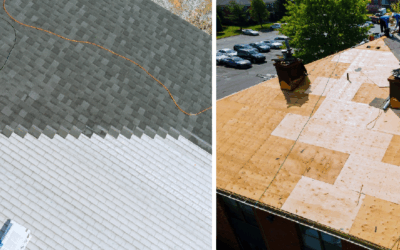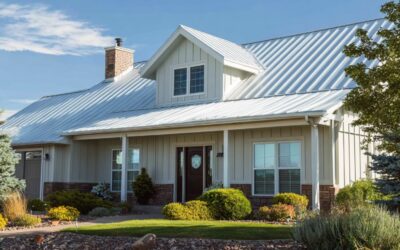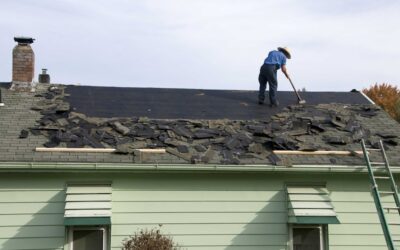Understanding 4/12 Roof Pitch Angle: Everything You Need to Know
4/12 Pitch In Degrees

What Is Roof Pitch?
Roof pitch (or slope) is a measure of how steep a roof is. It’s expressed as a ratio of the vertical rise over a 12-inch horizontal run. For example:- A 4/12 pitch means the roof rises 4 inches vertically for every 12 inches (1 foot) it extends horizontally.
Understanding the 4/12 Roof Pitch Angle
What Does 4/12 Pitch Mean in Degrees?
Roof pitch ratios can be converted into degrees to understand the actual angle of the roof surface.- The formula to convert pitch ratio to degrees is:
Visualizing a 4/12 Roof Pitch
A 4/12 roof pitch is considered a moderate slope — not flat, but not very steep either. It looks gently sloped, making it popular for many residential homes.Green House Brown RoofHow Does a 4/12 Roof Pitch Compare to Other Common Pitches?
| Pitch Ratio | Angle (degrees) | Classification |
|---|---|---|
| 2/12 | 9.46° | Low slope |
| 4/12 | 18.43° | Moderate slope |
| 6/12 | 26.57° | Standard/medium pitch |
| 8/12 | 33.69° | Steep slope |
| 12/12 | 45° | Very steep slope |
Advantages of a 4/12 Roof Pitch
1. Good Water Drainage
- The moderate slope of 4/12 helps water drain efficiently, reducing the chance of standing water and leaks.
- It works well in areas with moderate rainfall and snowfall.
2. Versatility in Roofing Materials
- Most roofing materials like asphalt shingles, metal roofing, and tiles perform well on a 4/12 pitch.
- It offers more options compared to very low slopes, which limit material choices.
3. Easier Maintenance and Access
- A 4/12 roof is safer and easier to walk on than steeper roofs.
- This makes inspections, cleaning gutters, or minor repairs simpler and less hazardous.
4. Balanced Aesthetic
- This pitch provides an attractive architectural profile without making the roof overly steep or flat.
- It blends well with many home styles, from traditional to modern.
Challenges and Considerations of a 4/12 Roof Pitch
1. Snow Accumulation Risk
- While 4/12 pitch facilitates water runoff, in heavy snow regions, it might not shed snow as quickly as steeper roofs.
- Snow buildup can increase the load on the roof, so reinforcement might be necessary.
2. Limited Use for Certain Roofing Materials
- Materials like wood shakes or slate shingles generally require steeper slopes for optimal performance.
- Low slope roofing materials (like modified bitumen or membrane roofing) might be better for pitches below 3/12.
3. Flashing and Drainage Detail
- The moderate slope demands careful installation of flashing and gutters to avoid water infiltration.
- Proper detailing around valleys, chimneys, and skylights is critical.
Is a 4/12 Pitch Roof Considered Low Slope?
Low slope roofs are generally defined as having a pitch of 2/12 or less. Since 4/12 is twice that, it is classified as a moderate slope roof, making it easier to use traditional roofing materials compared to true low-slope roofs that require special membranes.Roof Design and Structural Implications of a 4/12 Pitch
Framing Considerations
- Roof framing for a 4/12 pitch must support the expected loads including roofing materials, snow, and wind.
- Trusses and rafters are designed at this pitch to balance strength and material efficiency.
Impact on Attic Space
- The moderate slope allows for reasonable attic space.
- This can be used for storage or converted to living space depending on design.
Best Roofing Materials for a 4/12 Pitch Roof
Asphalt Shingles
- The most popular choice for moderate slopes.
- Provide excellent water shedding and durability.
Metal Roofing
- Metal panels work well on 4/12 pitches.
- Their lightweight nature reduces load on framing.
Synthetic Slate and Tile
- Some synthetic options are rated for use at 4/12 pitch.
- True slate and clay tile often require steeper slopes for proper water runoff.
Wood Shakes and Shingles
- Typically need a steeper slope (minimum 4:12 to 6:12) to avoid water penetration.
- On 4/12, installation must be careful to avoid leaks.
Installation Tips for a 4/12 Pitch Roof
- Ensure professional measurement of the roof pitch before starting.
- Use underlayment designed for moderate slope roofs.
- Pay special attention to flashing installation.
- Maintain proper ventilation to prevent moisture buildup.
- Safety gear for workers is essential due to the moderate slope.
Common Questions About 4/12 Roof Pitch
Q1: Can I install solar panels on a 4/12 roof pitch?
Yes. A 4/12 pitch is actually ideal for solar panels in many regions, offering a good angle to capture sunlight.Q2: Is a 4/12 pitch roof easier to repair than steeper roofs?
Generally, yes. Its moderate slope makes it safer for roofers to work on.Q3: Can I add insulation under a 4/12 roof?
Absolutely. You can add attic or roof insulation to improve energy efficiency without changing the pitch.Local Building Codes and 4/12 Roof Pitch
Some municipalities may have regulations specifying minimum or maximum roof pitches for aesthetic or safety reasons. Always consult local building codes and work with licensed roofing contractors familiar with the rules in your area.Why Choose S&K Construction and Remodeling LLC for Your 4/12 Pitch Roof?
If you’re in Northeast Ohio and need expert roofing services for your 4/12 pitch roof, S&K Construction and Remodeling LLC is your trusted partner.- Licensed and certified roofing experts
- Experience with moderate slope roofs and all major materials
- Detailed project assessments and free estimates
- Strong customer reviews and satisfaction guarantees
Conclusion
The 4/12 roof pitch offers a practical and attractive middle ground between low and steep roof slopes. It allows for a variety of roofing materials, good water drainage, and easier maintenance while still providing architectural charm. Whether building a new home or replacing your roof, understanding your roof pitch and working with professional contractors ensures a safe, durable, and visually appealing roof that stands the test of time. If you want expert help on your 4/12 pitch roof installation, repair, or replacement, reach out to S&K Construction and Remodeling LLC today for a free consultation.
440.235.3124
 (440) 307-2060
(440) 307-2060




